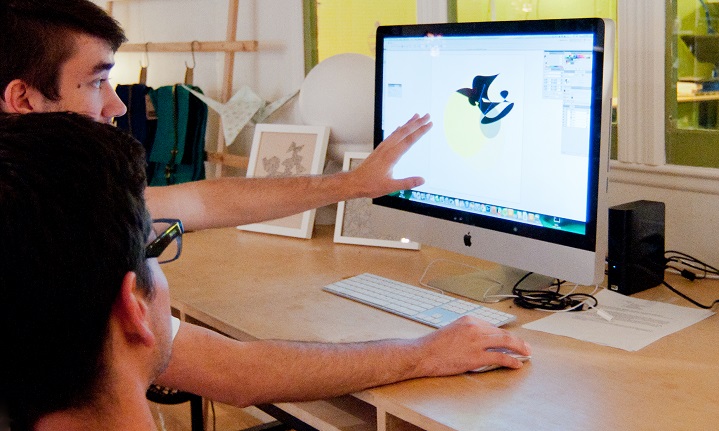How to establish and brand yourself as a professional Photographer
If you love snapping pics and have a creative eye, photographer jobs might be for you. With a number of specialisations within the field of photography, we wanted to take a look at what it takes to become a photographer in South Africa.
From education to some great photography tips to help you along the way, the team at Job Mail investigates the different aspects of photography and gives you some great advice to help you determine if this is the career that fuels your passion.

What does a photographer do?
A photographer is a trained professional specialised in the art of taking photographs. Though it might seem like a straight-forward career, photography jobs entail a creative talent and the practice of what is described as an art.
While there are many photographers out there, a truly talented photographer should have a natural sense and talent for both composition and design.
Becoming a photographer you will either be self-employed or work for a company or publication. You will work in a number of locations (rarely in an office) and with a wide range of people. You will also be active within the creative industry, working with other creatives such as graphic designers.
Photographers are also commonly involved in setting up shoots – organising the props, scouting locations and looking for subjects. You will also have to have some photo editing skills, adjusting photographs and improving various aspects (such as lighting) using computer programmes.
How to become a photographer
If you want to pursue a photography career, South Africa has a number of tertiary institutions where you can complete your studies.
Tshwane University of Technology
Found within the Faculty of Arts, the Tshwane University of Technology (TUT) offers a Bachelor’s Degree in Technology. Applied and Theory of Photography, Visual Communication as well as Professional Practice will make up your first year of studies at TUT.
Teaching both theory and practical skills, you will be a well-equipped graduate with sufficient knowledge to work in various industries including fashion, architecture, press and advertising industries. Note that if you would like to be considered for entrance to this programme, you will need an APS (Admission Point Score) of at least 18.

Cape Town School of Photography
Offering both full and part-time courses, the Cape Town School of Photography’s full time training programme lasts two years and combines both technical training as well as conceptual development to create a fully rounded, hands-on training experience.
Completing your first year of studies, you will have both a Technical and Personal portfolio that showcase your skills. By the end of your second year you will have a blog and/or a website and a Personal portfolio that showcase tour work and skills.
Stellenbosch Academy of Design and Photography
If your passion lies with pursuing photographer jobs, the Stellenbosch Academy of Design and Photography is another great option. The institution offers a Higher Certificate Programme, Short Courses and a BA in Visual Communication, so you are sure to find a study option that best suits you.
The Bachelor of Arts in Visual Communication is a comprehensive, three year, full time programme that gives you the option to choose two of five majors in your first year and one major for your second and third year. The available majors include Graphic Design, Illustration, Art Direction, Multimedia and Photography.
Other study options available also includes a Higher Certificate in Commercial Photography (one year long full time programme) and various short courses that range to include Basic Digital Photography, Cruise Ship Photography and Social Photography.

Oakfields College
Also offering full and part time studies, Oakfields College has a one year programme specially designed to help an up-and-coming photographer learn all the necessary technical and business skills required by the industry today. After your year is complete, you will also have the opportunity to showcase your work at the photography exhibition.
The part time course on offer from Oakfields College entails the learning of a number of technical skills as well as various outings to help you build your portfolio.

University of Johannesburg
The University of Johannesburg (UJ) is another great institution where you can gain the knowledge and skills to pursue a career in photography. At UJ you can choose between a BA programme and a National Diploma programme, both giving you the skills needed to pursue a career in photography.
The BA Design in Digital Media programme is a three year programme designed to equip students with the skills needed to be successful in the digital age. Upon successful completion you will be able to pursue a number of careers in the broadcast, advertising, film and design industry. Job titles achievable with this BA includes digital photographer, user interface designer, multimedia animator, digital video producer, consultants, animators and more.
Other programmes also on offer from UJ includes a National Diploma in Fine Arts and a BTec Multimedia Degree.
Tertiary institutions that also offer photography programmes include UNISA, College SA, the University of Pretoria (TUKS) and the Cape Peninsula University of Technology, to name but a few examples.

Specialised fields within photography
The art of photography is large, offering you a number of specialisations within specific fields in a large selection of industries.
Some examples of the different types of photographers out there today include:
– A Fashion Photographer: This type of photography jobs involve photography that focuses on fashion (clothing and accessories). These types of photos are done for advertisement purposes and will appear in various places including publications and even billboards.
[youtube id=”EwW5XOn-MwE” align=”center” maxwidth=”719″]
– An Event Photographer: This profession focusses on documenting special events – like weddings – taking photographs and doing the necessary editing to create a stunning result. Event photography can include a number of things – like new-born photoshoots, weddings, concerts and even product launches. If it is an event, an event photographer will definitely be there.
[youtube id=”KJUe0GX04IM” align=”center” maxwidth=”719″]
– Food Photography: This type of photography is commercial and involves the production of food photographs that will make your mouth water. Found in various publications, advertising industries, cookbooks and even menus, a food photographer is part of a team that includes an art director, prop stylist and a food stylist.

– Photojournalism: Involved in the news, a photojournalist had the obligation to tell the public a story through his or her lens. With an eye for actually seeing the world, photojournalists sometimes risk warzones and politically unstable countries to bring us the visual story.
You will find a range of specialisations within photography. From wildlife photography and sport photography, to wedding and food photography – your field of specialisation has almost no limits.
Photography tips for the up-and-coming photographer
If you are interested in becoming a professional photographer, Job Mail has a couple of tips and tricks to help you along the way.
1. Gain the necessary skills: A great way to get your foot in the door is to learn everything about photography that you can. Taking a short course or enrolling in a degree programme will give you the know-how and the skills you will need to be successful.
2. Internships: Nothing teaches quite as well as actually doing. Finding an internship (at publications or a design company active within the creative industries) will help you learn hands-on skills – the type you will most likely never get to learn in a classroom.
[youtube id=”IjstQkfbLb8″ align=”center” maxwidth=”719″]
3. Get that experience: Once you are qualified or feel ready to take the next step in your career, you can find entry-level photographer jobs – such as a freelance assistant. Remember that you can also take on other freelance positions for magazines and even events.
4. Build your portfolio: Because you are in a visually creative industry, it is very important to build a strong portfolio. This portfolio can help you showcase your work and your abilities as a professional photographer. Your portfolio should be ever growing – including new and better shots and maybe even removing the ones that do not meet your standards. Starting out, your portfolio will most likely contain images from unsolicited projects.

Other photography tips include creating an online portfolio – setting up a website and online gallery can help those in need of your services find, view your work and contact you for work. Also remember to take your camera with you wherever you go – you never know when you will take that perfect shot.
Work environment and remuneration
Photographers are very rarely found behind a desk in an office – except of course when it comes to editing your photographs. If you like being out and about, capturing stunning images to tell a story along the way, photography might be the right career choice for you.
In terms of remuneration, it is important to note that photographers can either have their own business, be permanently employed by a company or work on a freelance basis – all of this are factors that should be considered when it comes to yearly income figures.

According to PayScale, not taking specialisation into consideration, a photographer earns an average yearly income of R 121 679.
Ready to take on photographer jobs? Register your CV on www.JobMail.co.za now and start applying for vacancies in your area today!






